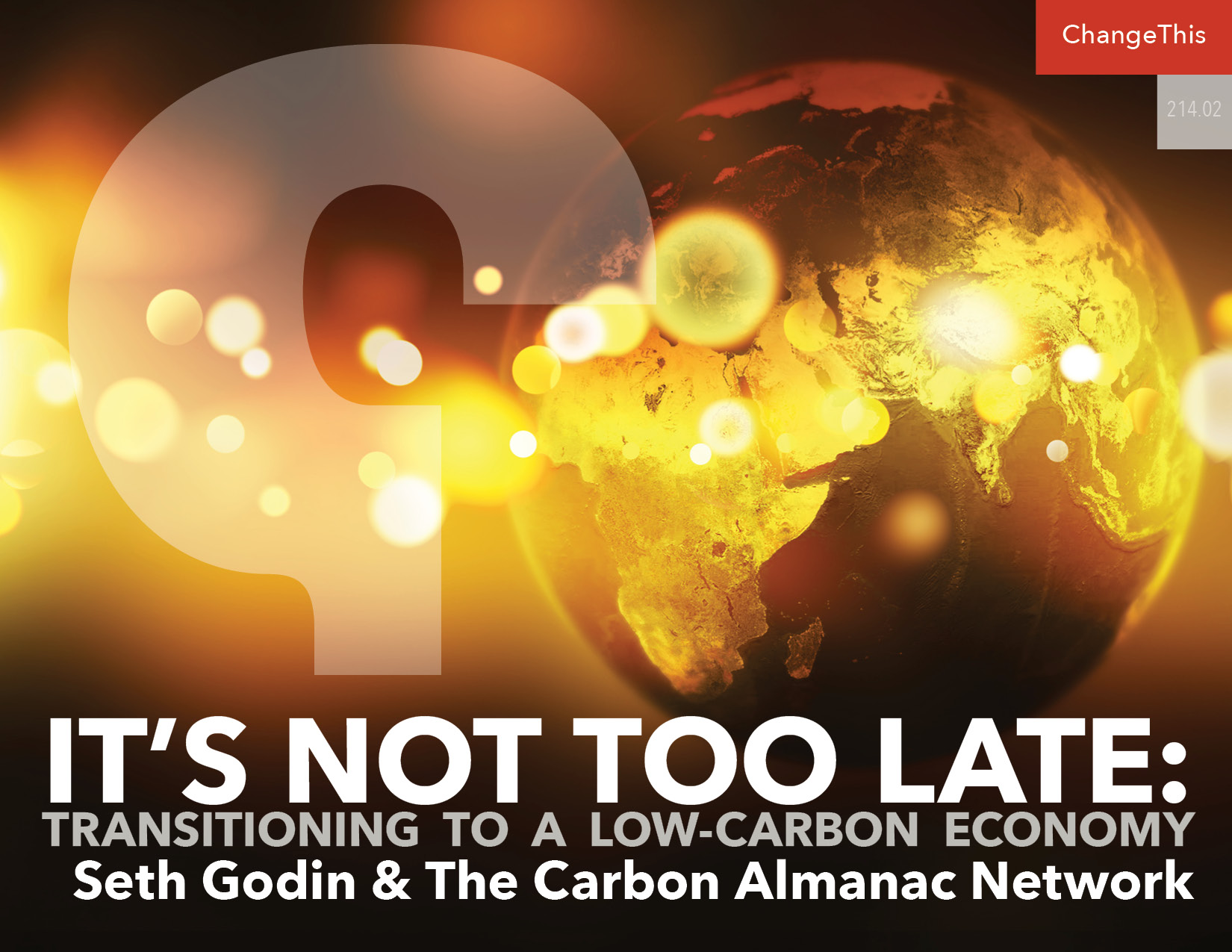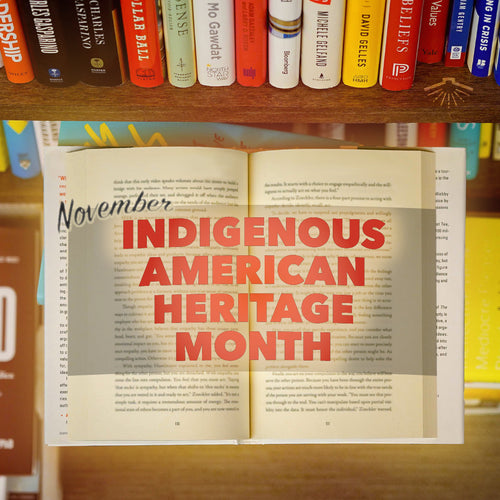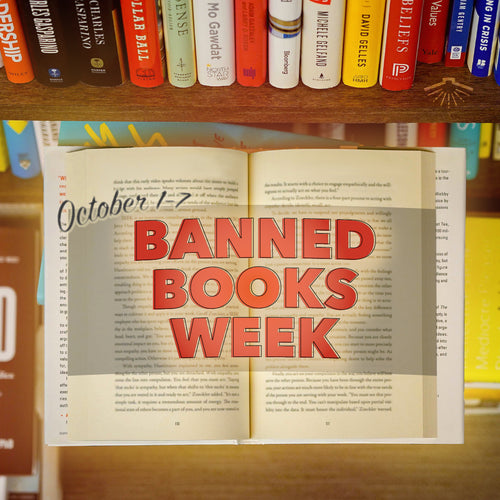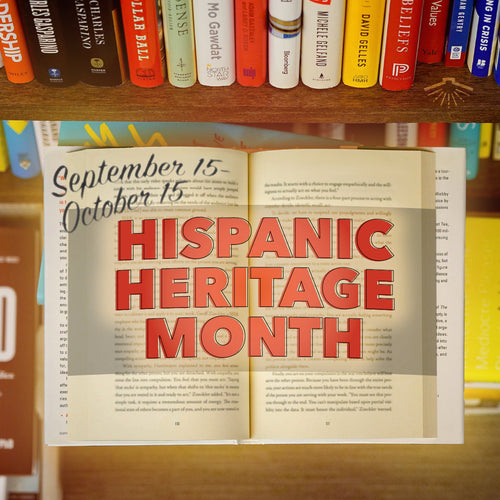April: Earth Month Booklist
We’re astonishingly well into Spring, and this month is packed with special holidays and celebratory events. Starting off with the most niche of these celebrations is 414 Day, which is a day (April 14) celebrated by and for Milwaukee! (Stay tuned for a future booklist for this holiday).
Additionally, April 23-29th is Disability Book Week, which, last year, was the theme of our first ever We See You, and We Read You post! While we’re not making another list for it this year, all of our picks last year are still highly relevant and the authors are still worth supporting, so you can go back and see which ones you haven’t read yet.
We also have a very exciting in-person interview on April 14th with Meg Zucker (register here), who is the founder and president of Don't Hide It, Flaunt It, a 501(c)(3) nonprofit with the mission of advancing understanding and mutual respect for people's differences, and author of Born Extraordinary: Empowering Children with Differences and Disabilities (order your copy now!). We hope you can make it!
A few other holidays worth recognizing this month are National Poetry Month, World Book Day (April 23), Holocaust Remembrance Day (April 27), and Independent Bookstore Day (April 29). While we should be acknowledging these things year round, having these specific days is a meaningful and useful way to annually rally community around these topics.
And finally, the most well-known of the holidays this month might be Earth Day (April 22). The entire month of April has been designated Earth Month, giving us all 30 days to get some good reads together to learn about the planet. It’s hard work to think about, read about, and then act on improving our planet’s health. Even just putting together an Earth Day booklist comes with a spinning wheel of conflicting feelings: from concern to curiosity to hopefulness to pessimism and back again. Can we do something? Yes. Will we do something? That is still being determined, so we should be determined.
I think these books can help us settle our minds somewhere in a gray area of these emotions, to remain realistic but hopeful, and be ready to act collectively.
...
CHANGETHIS | “It's Not Too Late: Transitioning to a Low-Carbon Economy” by Seth Godin
Not everything can go up forever. For a hundred years or more, we’ve been cutting, burning, tilling, and trashing our way to the future.
And now there’s no avoiding the truth of what’s happened. Each of us is becoming aware that, like it or not, change is here.
But the change can be for the better. It can create jobs, enhance careers, and give us a chance to focus on what we’ve overlooked. We can reconsider how we spend our days, the way we treat each other, and how we create a better world.
The change is here. It’s not too late. This is our moment to decide what to do with it.
To make informed decisions, we must understand how our economy has come to be so tied to fossil fuels and the ways in which we as individuals and organizations can begin to change the incentives to decarbonize the economy.
Continue reading this ChangeThis manifesto.
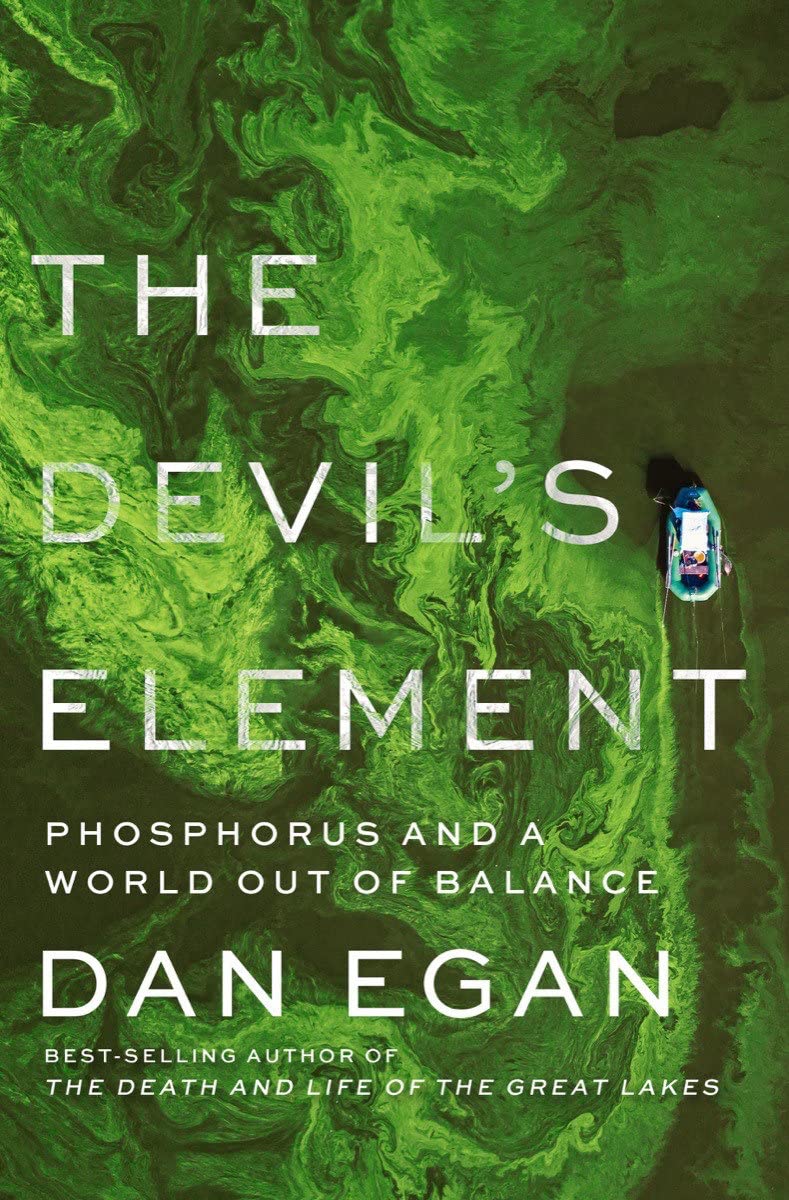 EDITOR’S CHOICE REVIEW | The Devil's Element: Phosphorus and a World Out of Balance by Dan Egan, W. W. Norton & Company
EDITOR’S CHOICE REVIEW | The Devil's Element: Phosphorus and a World Out of Balance by Dan Egan, W. W. Norton & Company
From the firebombing of Hamburg in WWII to digging up fallen soldiers’ bones from the battle of Waterloo and using them to fertilize the farm fields of England, putting phosphorus to use has had a dark and grisly history. That history unfolds in the pages of Dan Egan’s new book, The Devil’s Element, but the story of humans and phosphorus is still evolving—affecting everyone and everything that lives and dies on Earth. That may sound like hyperbole, but I assure you it is not. Entire islands have been stripped nearly bare for it. Entire cultures have been, and continue to be, swept violently aside or subdued in pursuit of this essential element.
If the reason for this could be summed up in one word, it would be one close to our homes and hearts here in Wisconsin: agriculture. That is because phosphorus, along with nitrogen and potassium, is essential for making things grow, and we grow a lot of things here in the dairy state.
Continue reading Dylan’s review.
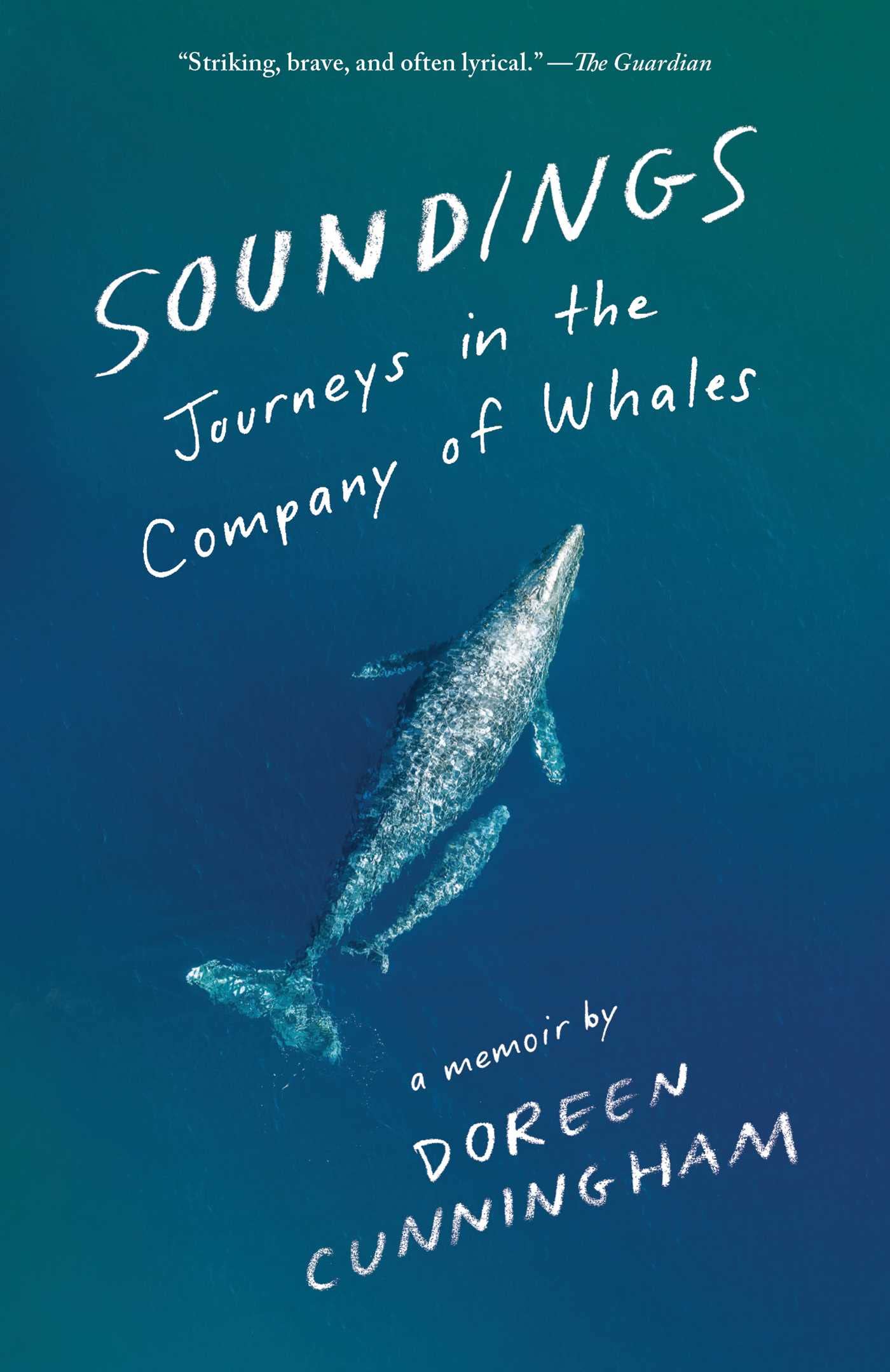 WRITTEN INTERVIEW | A Q&A with Doreen Cunningham, author of Soundings: Journeys in the Company of Whales
WRITTEN INTERVIEW | A Q&A with Doreen Cunningham, author of Soundings: Journeys in the Company of Whales
As a journalist and environmentalist Doreen Cunningham worked for the BBC and eventually became a mother to small Max. After going through a difficult relationship, being a freelance writer and journalist, she found herself without a permanent residence she could reside in bouncing from hostel to hostel with her little one. In Soundings Doreen not only introduces us to the independent journalist searching the Arctic with Indigenous whalers, but to a strong resilient single mother who mimics the esteemed whale mother tending to her young. A story of strength, courage, resilience, motherhood, grief and finding yourself in the most unlikely places. The places you are meant to be.
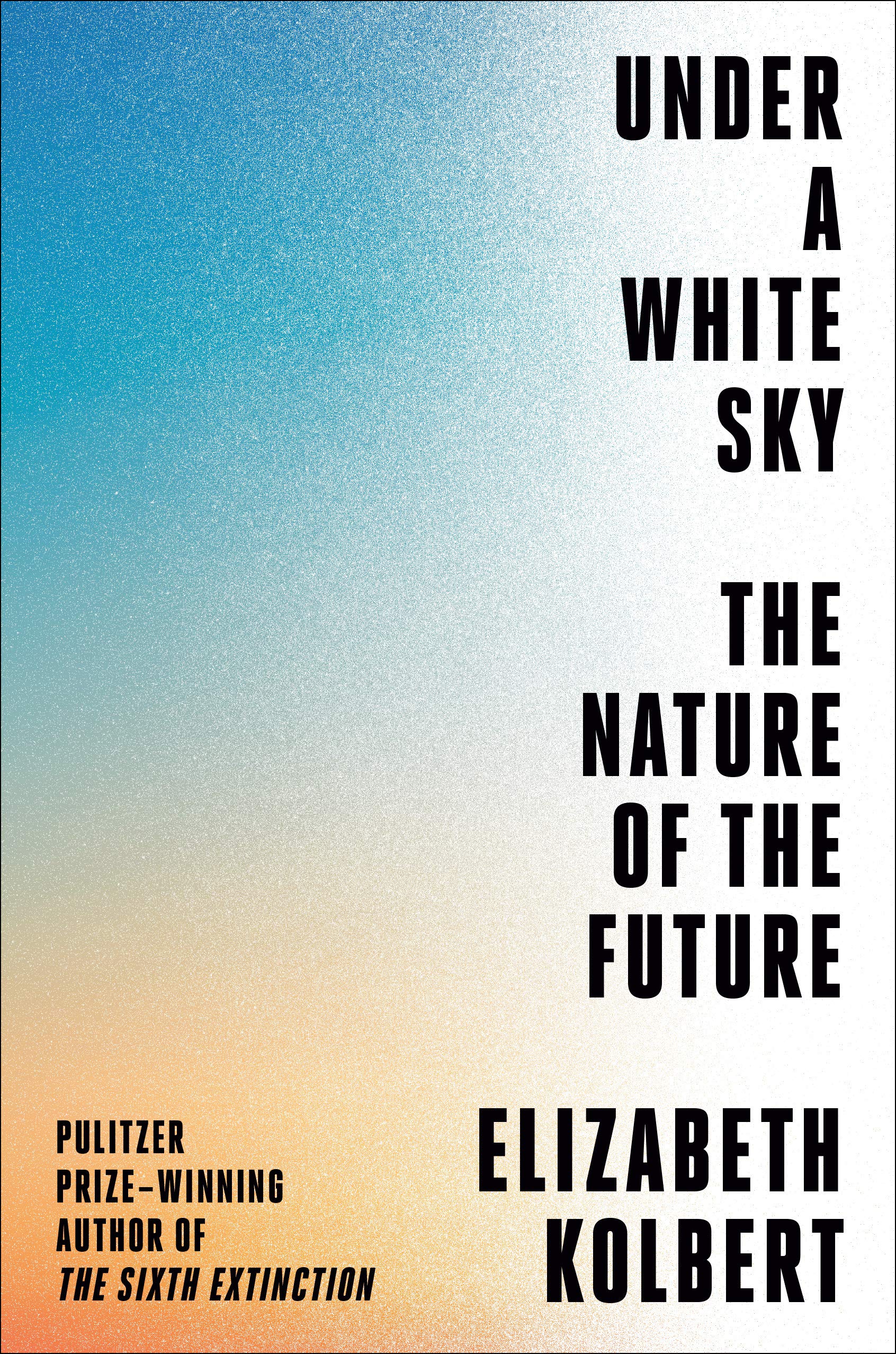 STAFF PICKS REVIEW | Under a White Sky: The Nature of the Future by Elizabeth Kolbert, Crown
STAFF PICKS REVIEW | Under a White Sky: The Nature of the Future by Elizabeth Kolbert, Crown
Reviewed by Gabbi Cisneros
Humankind has tampered with, disturbed, or otherwise impacted every ecosystem on Earth, and Under a White Sky illustrates this from the ground up: We follow Kolbert in her research expeditions through the coastal plains of Louisiana, the Devils Hole cavern of Death Valley, coral breeding tanks abutting the Great Barrier Reef, a drilling operation atop two miles of ice and thousands of years of history in Greenland, and more.
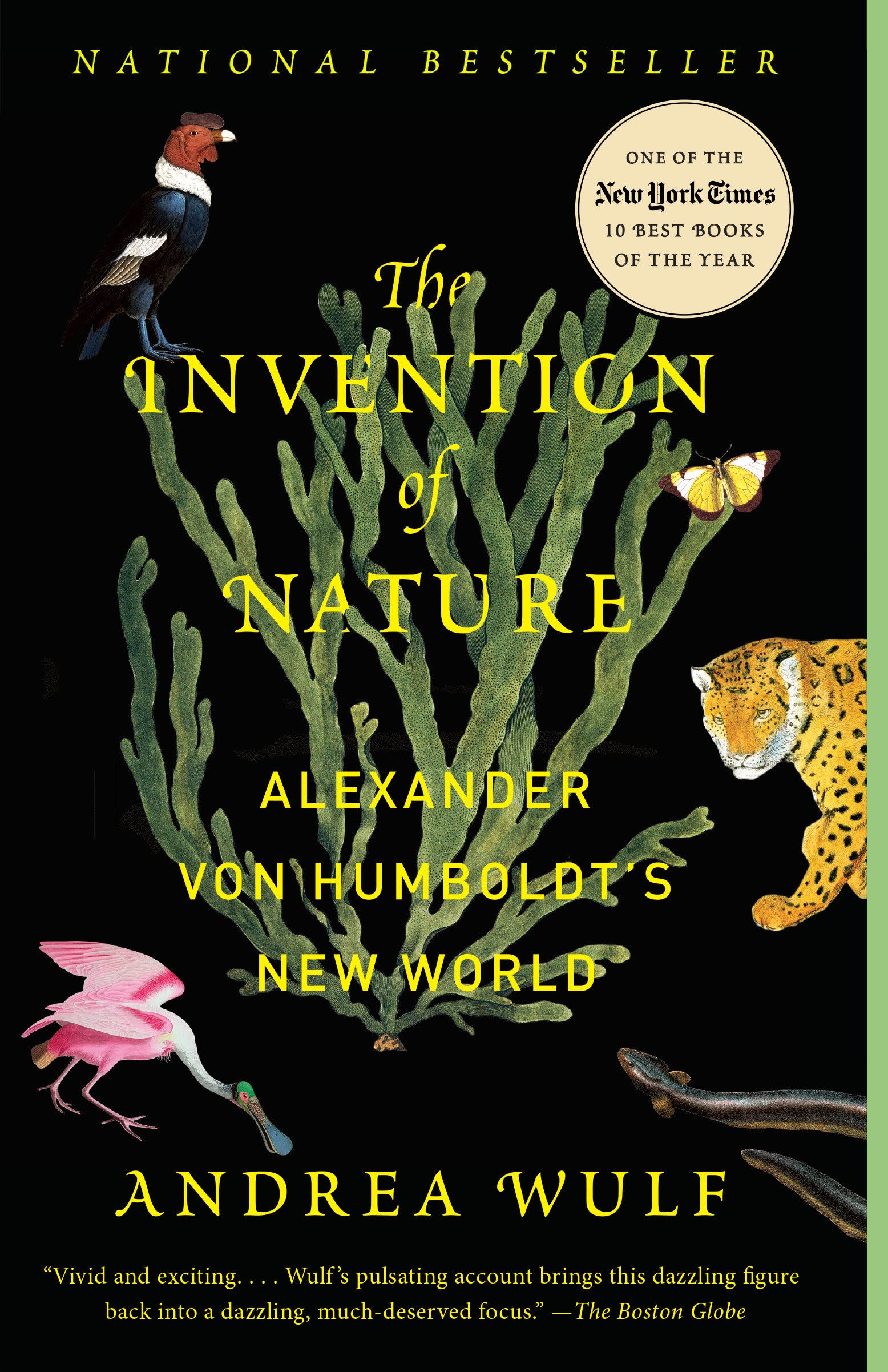 STAFF PICK | The Invention of Nature: Alexander von Humboldt's New World by Andrea Wulf, Vintage
STAFF PICK | The Invention of Nature: Alexander von Humboldt's New World by Andrea Wulf, Vintage
Recommended by Michael Jantz
Alexander von Humboldt (1769-1859) was the most famous scientist of his age, a visionary German naturalist and polymath whose discoveries forever changed the way we understand the natural world. Among his most revolutionary ideas was a radical conception of nature as a complex and interconnected global force that does not exist for the use of humankind alone. In North America, Humboldt’s name still graces towns, counties, parks, bays, lakes, mountains, and a river. And yet the man has been all but forgotten.
In this illuminating biography, Andrea Wulf brings Humboldt’s extraordinary life back into focus: his prediction of human-induced climate change; his daring expeditions to the highest peaks of South America and to the anthrax-infected steppes of Siberia; his relationships with iconic figures, including Simón Bolívar and Thomas Jefferson; and the lasting influence of his writings on Darwin, Wordsworth, Goethe, Muir, Thoreau, and many others. Brilliantly researched and stunningly written, The Invention of Nature reveals the myriad ways in which Humboldt’s ideas form the foundation of modern environmentalism—and reminds us why they are as prescient and vital as ever.
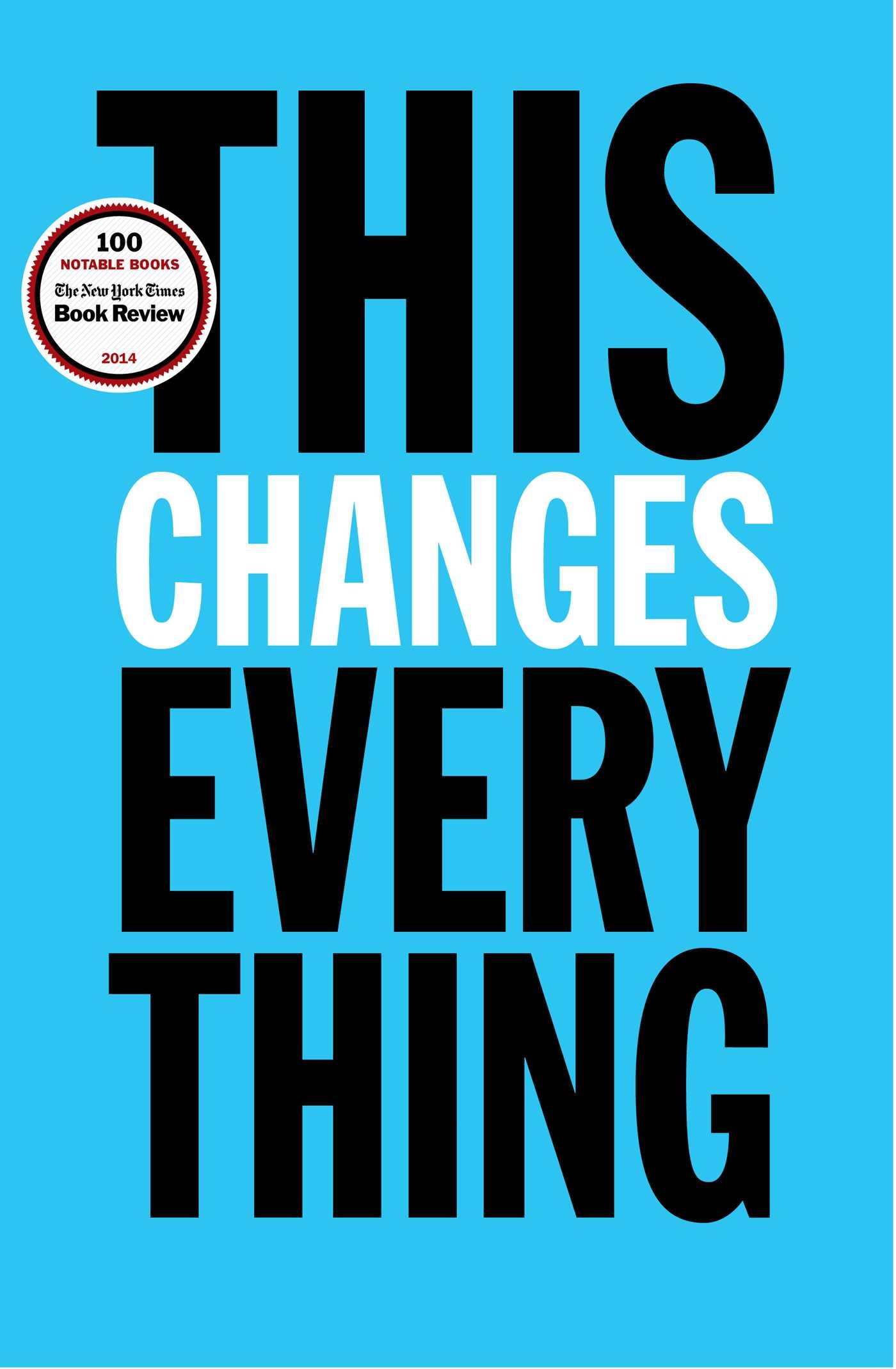 STAFF PICK | This Changes Everything: Capitalism vs. the Climate by Naomi Klein, Simon & Schuster
STAFF PICK | This Changes Everything: Capitalism vs. the Climate by Naomi Klein, Simon & Schuster
Recommended by Adrienne Doubet
In short, either we embrace radical change ourselves or radical changes will be visited upon our physical world. The status quo is no longer an option.
In This Changes Everything Naomi Klein argues that climate change isn’t just another issue to be neatly filed between taxes and health care. It’s an alarm that calls us to fix an economic system that is already failing us in many ways. Klein meticulously builds the case for how massively reducing our greenhouse emissions is our best chance to simultaneously reduce gaping inequalities, re-imagine our broken democracies, and rebuild our gutted local economies. She exposes the ideological desperation of the climate-change deniers, the messianic delusions of the would-be geoengineers, and the tragic defeatism of too many mainstream green initiatives. And she demonstrates precisely why the market has not—and cannot—fix the climate crisis but will instead make things worse, with ever more extreme and ecologically damaging extraction methods, accompanied by rampant disaster capitalism.
Klein argues that the changes to our relationship with nature and one another that are required to respond to the climate crisis humanely should not be viewed as grim penance, but rather as a kind of gift—a catalyst to transform broken economic and cultural priorities and to heal long-festering historical wounds. And she documents the inspiring movements that have already begun this process: communities that are not just refusing to be sites of further fossil fuel extraction but are building the next, regeneration-based economies right now.
Can we pull off these changes in time? Nothing is certain. Nothing except that climate change changes everything. And for a very brief time, the nature of that change is still up to us.
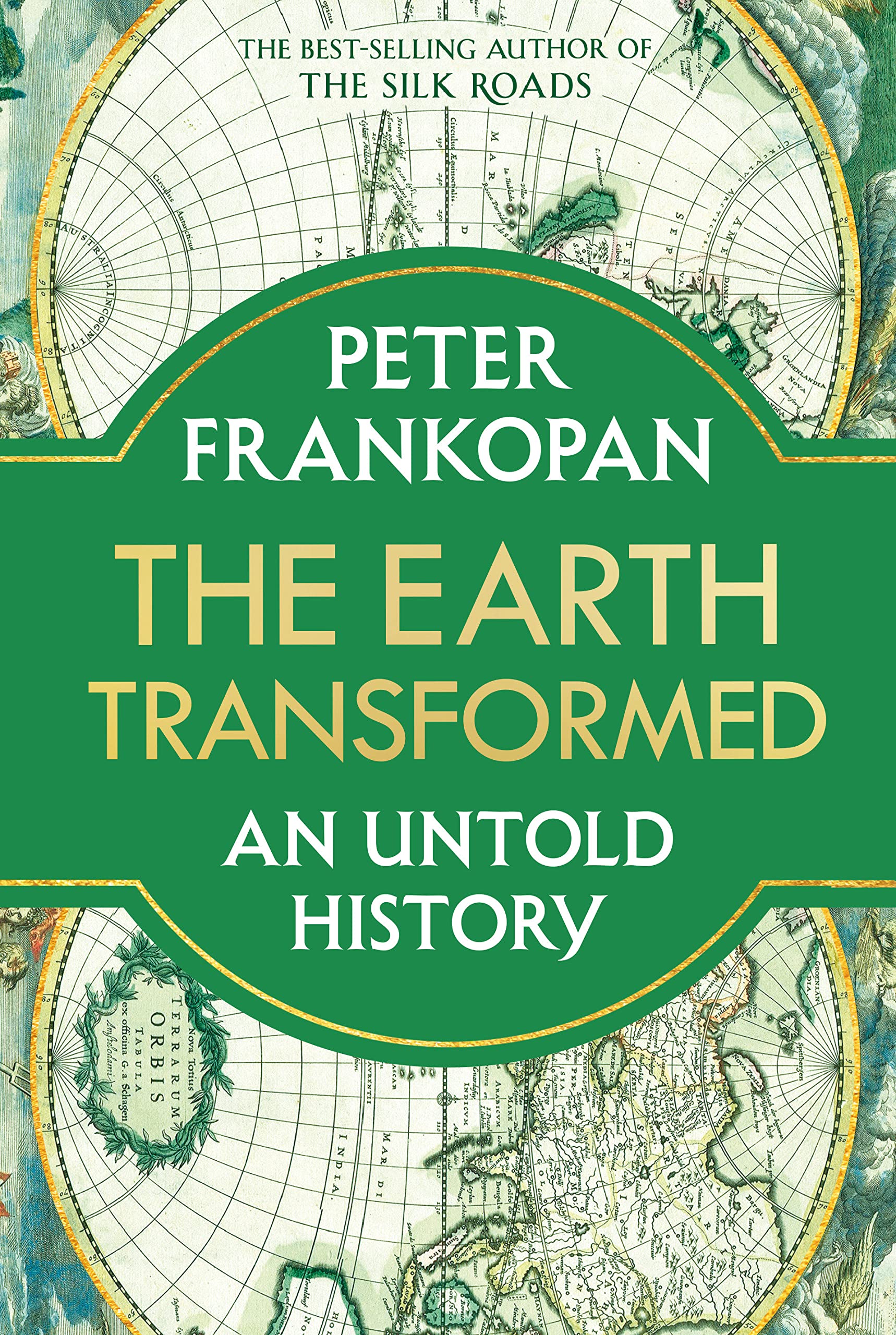 STAFF PICK | The Earth Transformed: An Untold History by Peter Frankopan, Knopf
STAFF PICK | The Earth Transformed: An Untold History by Peter Frankopan, Knopf
Recommended by Sally Haldorson
Global warming is one of the greatest dangers mankind faces today. Even as temperatures increase, sea levels rise, and natural disasters escalate, our current environmental crisis feels difficult to predict and understand. But climate change and its effects on us are not new. In a bold narrative that spans centuries and continents, Peter Frankopan argues that nature has always played a fundamental role in the writing of history. From the fall of the Moche civilization in South America that came about because of the cyclical pressures of El Niño to volcanic eruptions in Iceland that affected Egypt and helped bring the Ottoman empire to its knees, climate change and its influences have always been with us.
Frankopan explains how the Vikings emerged thanks to catastrophic crop failure, why the roots of regime change in eleventh-century Baghdad lay in the collapse of cotton prices resulting from unusual climate patterns, and why the western expansion of the frontiers in North America was directly affected by solar flare activity in the eighteenth century. Again and again, Frankopan shows that when past empires have failed to act sustainably, they have been met with catastrophe. Blending brilliant historical writing and cutting-edge scientific research, The Earth Transformed will radically reframe the way we look at the world and our future.
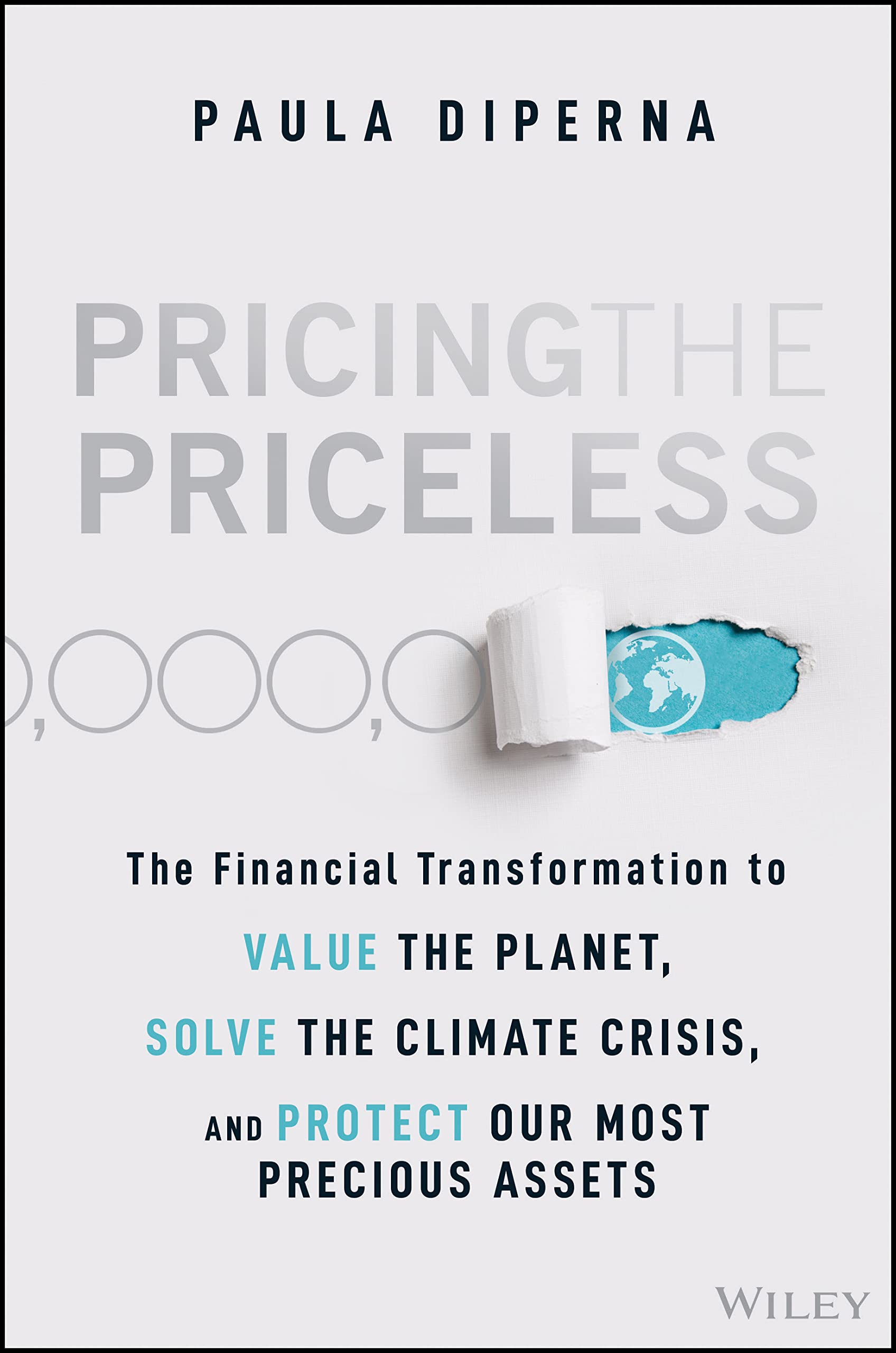 UPCOMING RELEASE | Pricing the Priceless: The Financial Transformation to Value the Planet, Solve the Climate Crisis, and Protect Our Most Precious Assets by Paula DiPerna, Wiley
UPCOMING RELEASE | Pricing the Priceless: The Financial Transformation to Value the Planet, Solve the Climate Crisis, and Protect Our Most Precious Assets by Paula DiPerna, Wiley
In Pricing the Priceless: The Financial Transformation to Value the Planet, Solve the Climate Crisis, and Protect Our Most Precious Assets, renowned environmental strategist, speaker, world traveler and author Paula DiPerna brings a unique voice and optic to de-mystify and unveil today’s most fascinating financial disruption—pricing the priceless to flip conventional ideas of how we value natural assets and why. She asks the provocative question long ignored: Why do we value the indispensable atmosphere at zero, but dispensable production in the trillions? She digs into alternatives, with real-life examples from around the globe of fascinating and pioneering financial innovations—controversial and paradoxical, but essential. In the book, you’ll travel from rainforests to Wall Street, Board Rooms to the Vatican, coral reefs to mangroves to China’s carbon markets. Timely, adventurous, eclectic, and accessible, Pricing the Priceless brings alive the critical financial transformation that will determine future planetary health and social stability.
With power, clarity and real-world experience, the author also examines:
- Fascinating new financial inventions and experiments—insurance, bonds, markets, investment funds—all aimed at pricing what is precious and vital to human well-being
- How the great current intergenerational shift in wealth and attitudes is redefining investment trends and the idea of what constitutes wealth and return
- How climate change and other urgent environmental problems now require entirely new financial thinking to trigger solutions
- How once-radical ideas about measuring economic progress are now re-imagining the very purpose of capitalism
- Why finance needs critical re-invention to remain credible in the face of increasing public skepticism of business-as-usual economic practice
A can’t-miss read for thought leaders, business executives, investors, activists, and entrepreneurs, Pricing the Priceless is a landmark that will shape the world and future, bridging the tangible and intangible to answer a critical question of rising economic and social inspiration: What is money for?
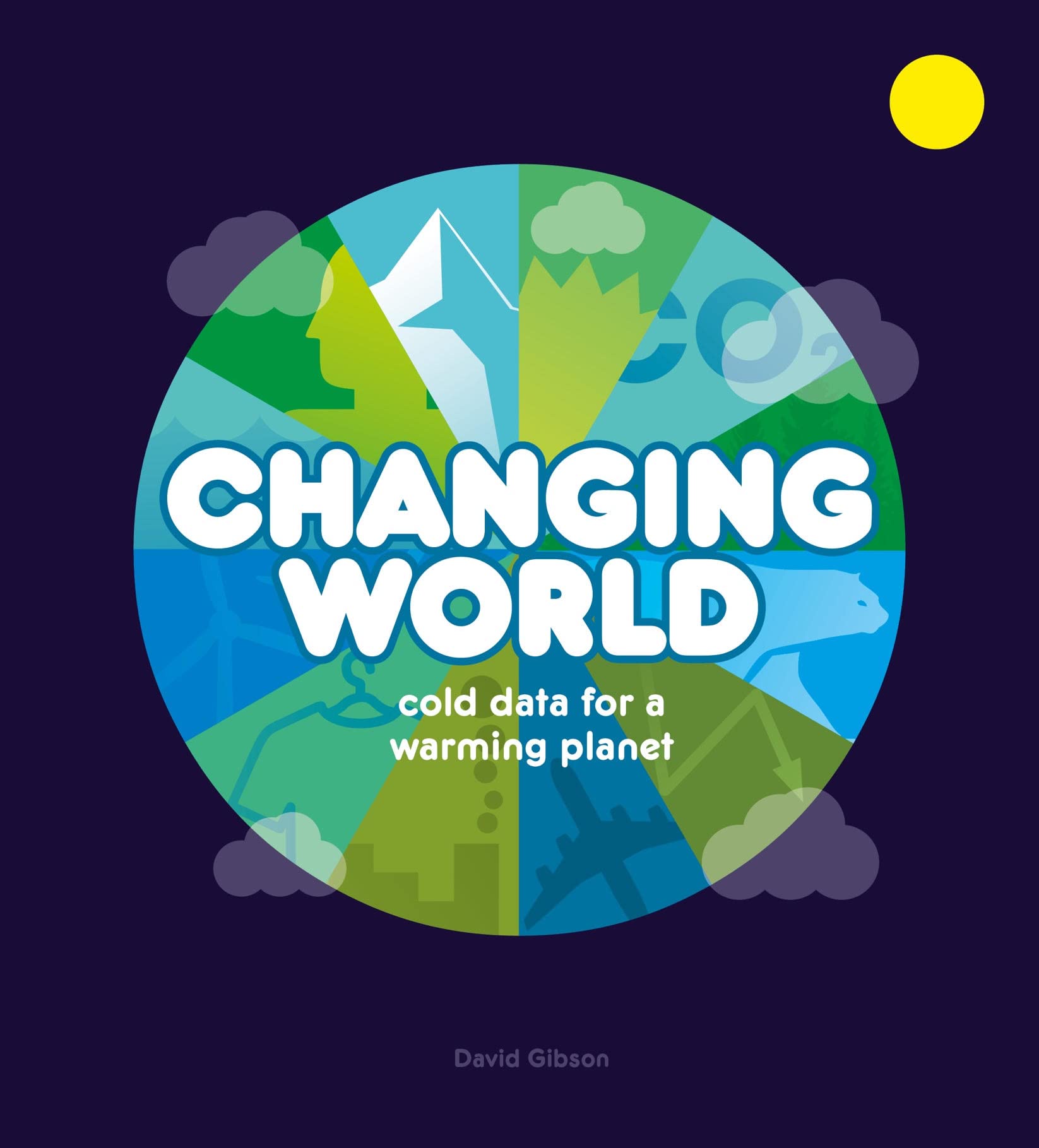 NEW RELEASE | Changing World: Cold data for a warming planet by David Gibson, Cicada Books
NEW RELEASE | Changing World: Cold data for a warming planet by David Gibson, Cicada Books
Convenient infographics to illuminate inconvenient truths...
Everything you wanted to know about climate change but were too afraid to ask!
The terrifying effects of a warming planet are impossible to ignore, but sometimes it's hard to pick through the facts and to understand exactly what’s happening and how. This book of bright, bold infographics illuminates the realities of climate change in hard numbers, digestible data and vivid visualizations.
How will rising sea levels affect us?
What is the impact of meat on the planet?
What industries create the most emissions?
How do renewable energies compare to one another? What are the most effective things we as individuals can do to help the planet?
Without sugar-coating or fear-mongering, this is a book that conveniently unpacks inconvenient truths in a way that is accessible to readers young and old.
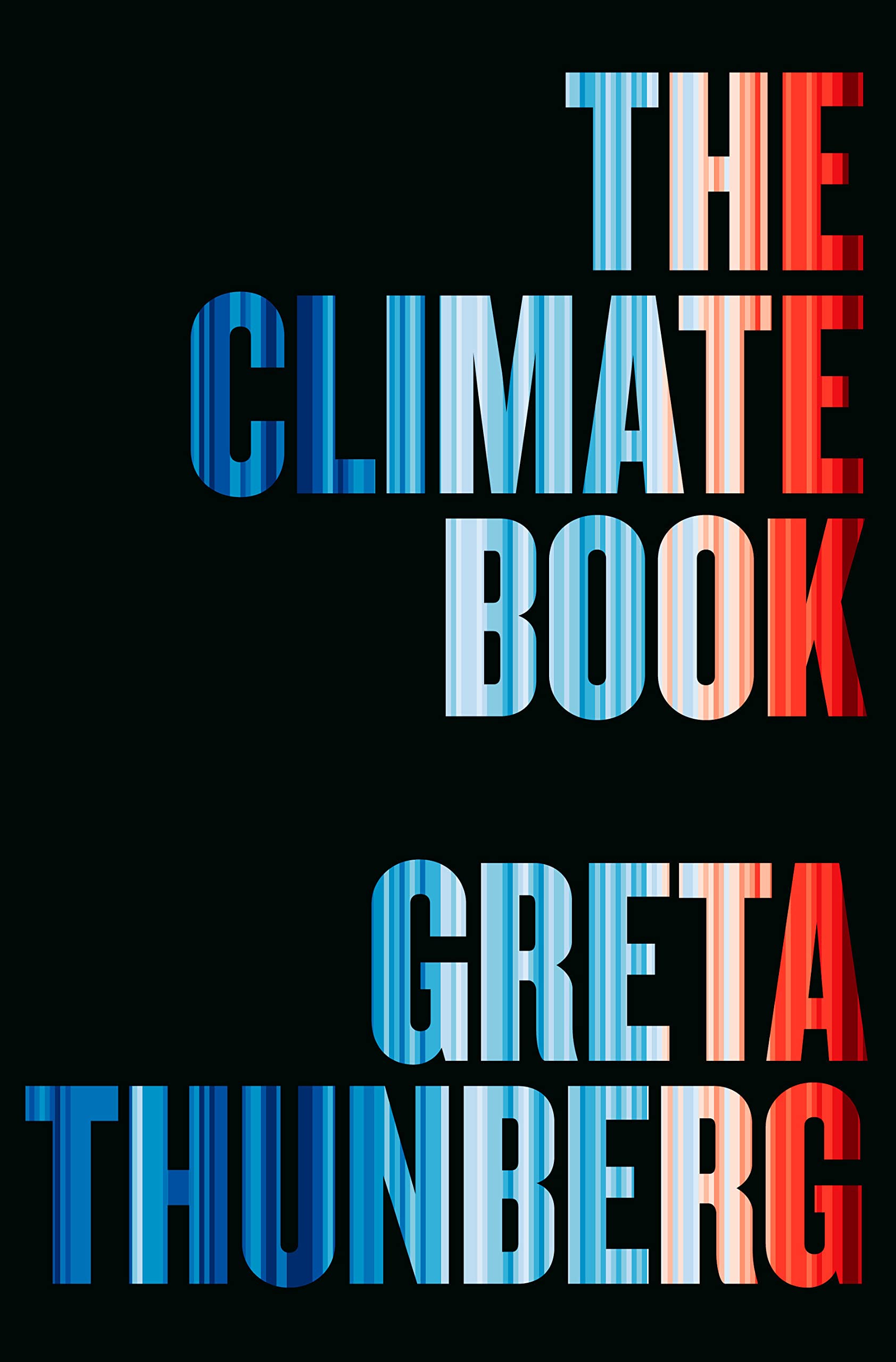 NEW RELEASE | The Climate Book: The Facts and the Solutions by Greta Thunberg, Penguin Press
NEW RELEASE | The Climate Book: The Facts and the Solutions by Greta Thunberg, Penguin Press
We still have time to change the world. From Greta Thunberg, the world's leading climate activist, comes the essential handbook for making it happen.
You might think it's an impossible task: secure a safe future for life on Earth, at a scale and speed never seen, against all the odds. There is hope - but only if we listen to the science before it's too late.
In The Climate Book, Greta Thunberg has gathered the wisdom of over one hundred experts - geophysicists, oceanographers and meteorologists; engineers, economists and mathematicians; historians, philosophers and indigenous leaders - to equip us all with the knowledge we need to combat climate disaster. Alongside them, she shares her own stories of demonstrating and uncovering greenwashing around the world, revealing how much we have been kept in the dark. This is one of our biggest challenges, she shows, but also our greatest source of hope. Once we are given the full picture, how can we not act? And if a schoolchild's strike could ignite a global protest, what could we do collectively if we tried? We are alive at the most decisive time in the history of humanity. Together, we can do the seemingly impossible. But it has to be us, and it has to be now.
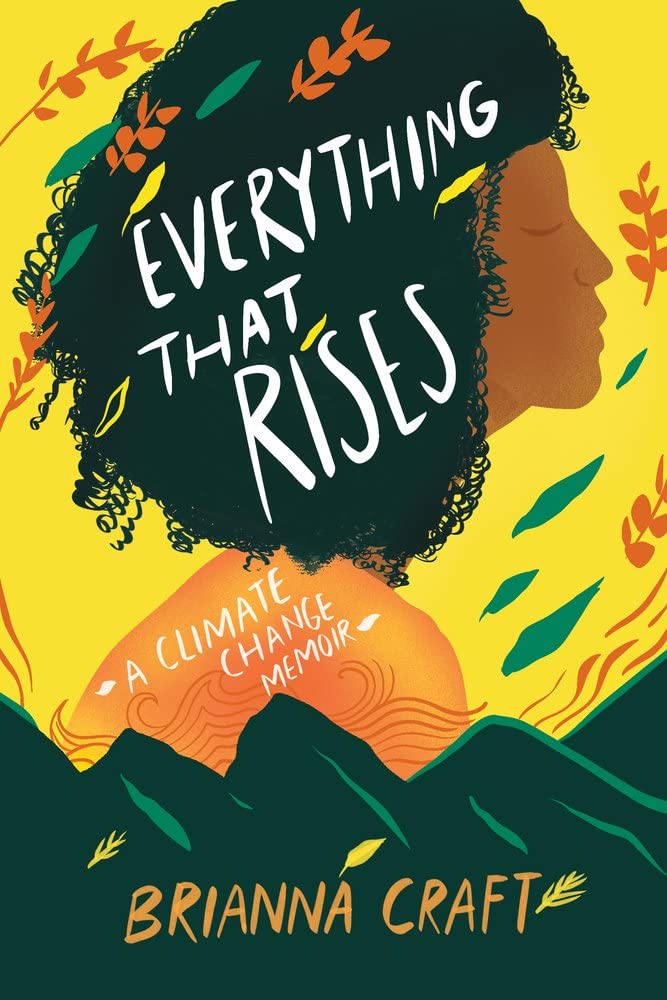 NEW RELEASE | Everything That Rises: A Climate Change Memoir by Brianna Craft, Lawrence Hill Books
NEW RELEASE | Everything That Rises: A Climate Change Memoir by Brianna Craft, Lawrence Hill Books
Nineteen-year-old Brianna Craft is having a panic attack. A professor’s matter-of-fact explanation of the phenomenon known as “climate change” has her white-knuckling the table in her first environmental studies lecture. Out of her father’s house, she was supposed to be safe.
This moment changed everything for Brianna. For her first internship, she jumped at the chance to assist the Least Developed Countries Group at the United Nations’ negotiations meant to produce a new climate treaty. While working for those most ignored yet most impacted by the climate crisis, she grappled with the negligent indifference of those who hold the most power. This dynamic painfully reminded her of growing up in a house where the loudest voice always won and violence silenced those in need.
Four years later, Brianna witnessed the adoption of the first universal climate treaty, the Paris Agreement. In this memoir that blends the political with the personal, Brianna dives into what it means to advocate for the future, and for the people and places you love, all while ensuring your own voice doesn’t get lost in the process.
It will take all of us to protect our home.
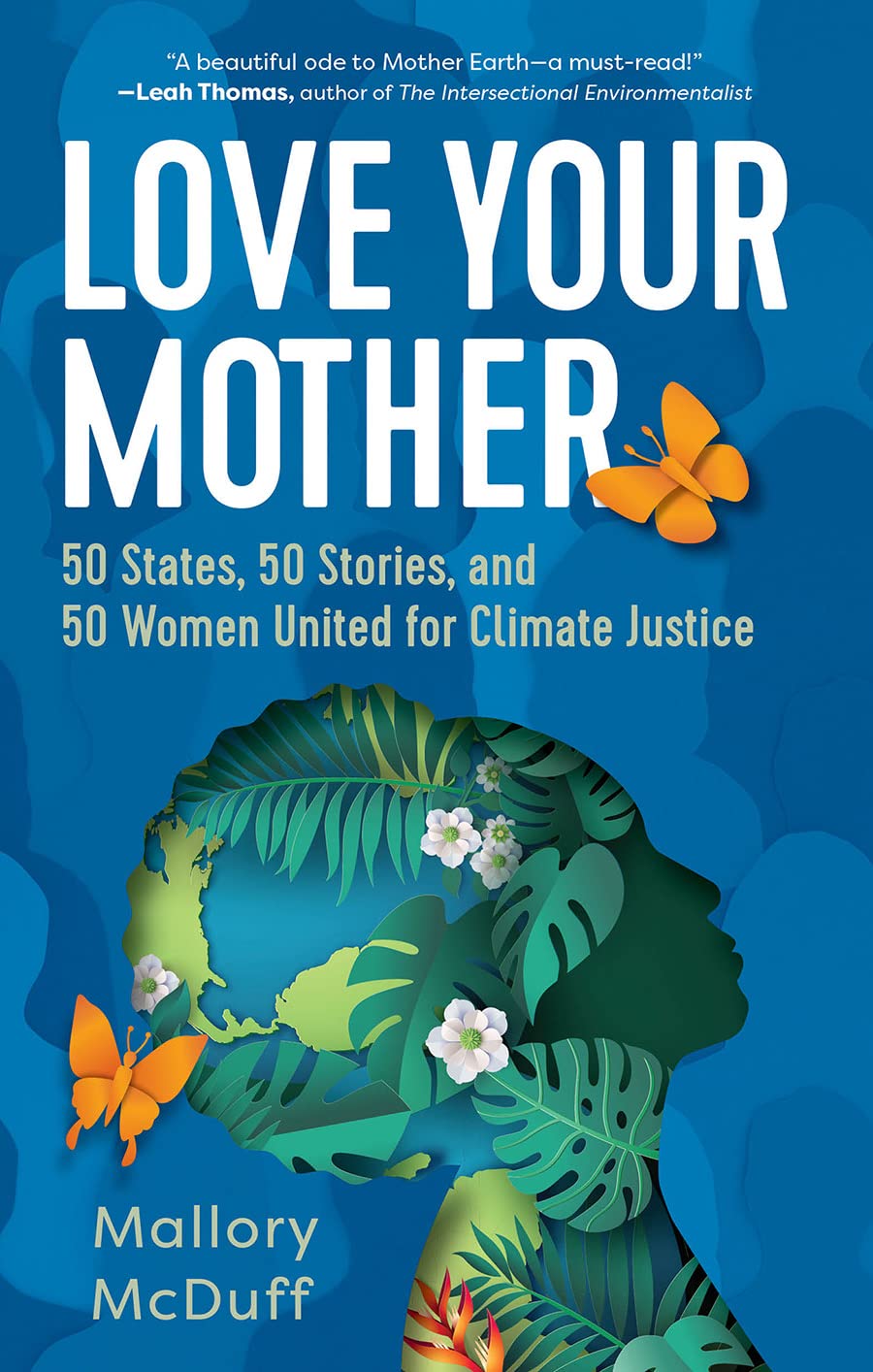 NEW RELEASE | Love Your Mother: 50 States, 50 Stories, and 50 Women United for Climate Justice by Mallory McDuff, Broadleaf Books
NEW RELEASE | Love Your Mother: 50 States, 50 Stories, and 50 Women United for Climate Justice by Mallory McDuff, Broadleaf Books
With stunning illustrations, environmental educator Mallory McDuff highlights the diverse stories of fifty women and girls leading the way to address climate change and sustainability for the next generation.
From elder voices opposing the Dakota Pipeline to young people running for office to advocate for change, every day we see real-life stories about how women are making a collective difference on climate justice. Women are also disproportionately impacted by climate change and thus are critical to transforming society away from dependence on fossil fuels and toward renewable energy and environmental equity.
As a mother and a professor of environmental education, Mallory McDuff wanted to give her two daughters and her students a roadmap to engage in climate justice in their communities, rather than be left feeling paralyzed by the enormity of the problem. She set out to find women of diverse ages, backgrounds, and vocations--one from each of the fifty US states--as inspiration for a new kind of leadership focused on the heart of the climate crisis. Love Your Mother lifts up the stories of these women working toward a viable future, from farmer and rancher Donna Kilpatrick in Arkansas to writer Latria Graham in South Carolina.
From Alabama to Alaska, from Wisconsin to Wyoming, these women are poets, physicians, climate scientists, students, farmers, writers, documentary filmmakers, and more. Their work lights the way for conversation and collective action in our homes and in the world. It's time we follow their lead.
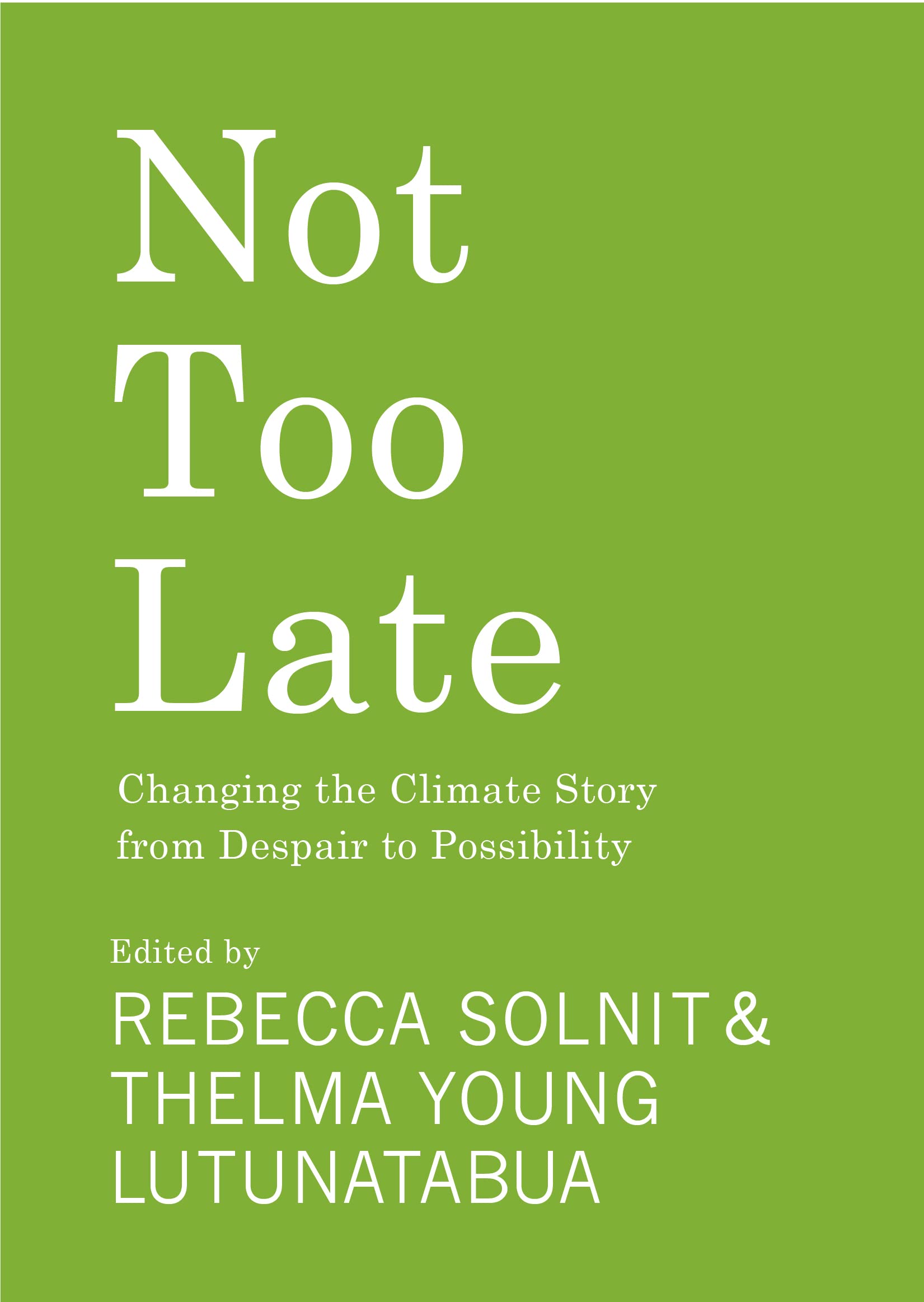 EDITOR'S CHOICE | Not Too Late: Changing the Climate Story from Despair to Possibility edited by Rebecca Solnit & Thelma Young-Lutunatabua, Haymarket Books
EDITOR'S CHOICE | Not Too Late: Changing the Climate Story from Despair to Possibility edited by Rebecca Solnit & Thelma Young-Lutunatabua, Haymarket Books
An energizing case for hope about the climate, from Rebecca Solnit (“the voice of the resistance”—New York Times), climate activist Thelma Young Lutunatabua, and a chorus of voices calling on us to rise to the moment.
Not Too Late brings strong climate voices from around the world to address the political, scientific, social, and emotional dimensions of the most urgent issue human beings have ever faced. Accessible, encouraging, and engaging, it's an invitation to everyone to understand the issue more deeply, participate more boldly, and imagine the future more creatively.
In concise, illuminating essays and interviews, Not Too Late features the voices of Indigenous activists, such as Guam-based attorney and writer Julian Aguon; climate scientists, among them Jacquelyn Gill and Edward Carr; artists, such as Marshall Islands poet and activist Kathy Jeñtil-Kijiner; and longtime organizers, including The Tyranny of Oil author Antonia Juhasz and Emergent Strategy author adrienne maree brown.
Shaped by the clear-eyed wisdom of editors Rebecca Solnit and Thelma Young Lutunatabua, and enhanced by illustrations by David Solnit, Not Too Late is a guide to take us from climate crisis to climate hope.
Contributors include Julian Aguon, Jade Begay, adrienne maree brown, Edward Carr, Renato Redantor Constantino, Joelle Gergis, Jacquelyn Gill, Mary Annaise Heglar, Mary Anne Hitt, Roshi Joan Halifax, Nikayla Jefferson, Antonia Juhasz, Kathy Jetnil Kijiner, Fenton Lutunatabua & Joseph `Sikulu, Yotam Marom, Denali Nalamalapu, Leah Stokes, Farhana Sultana, and Gloria Walton.

